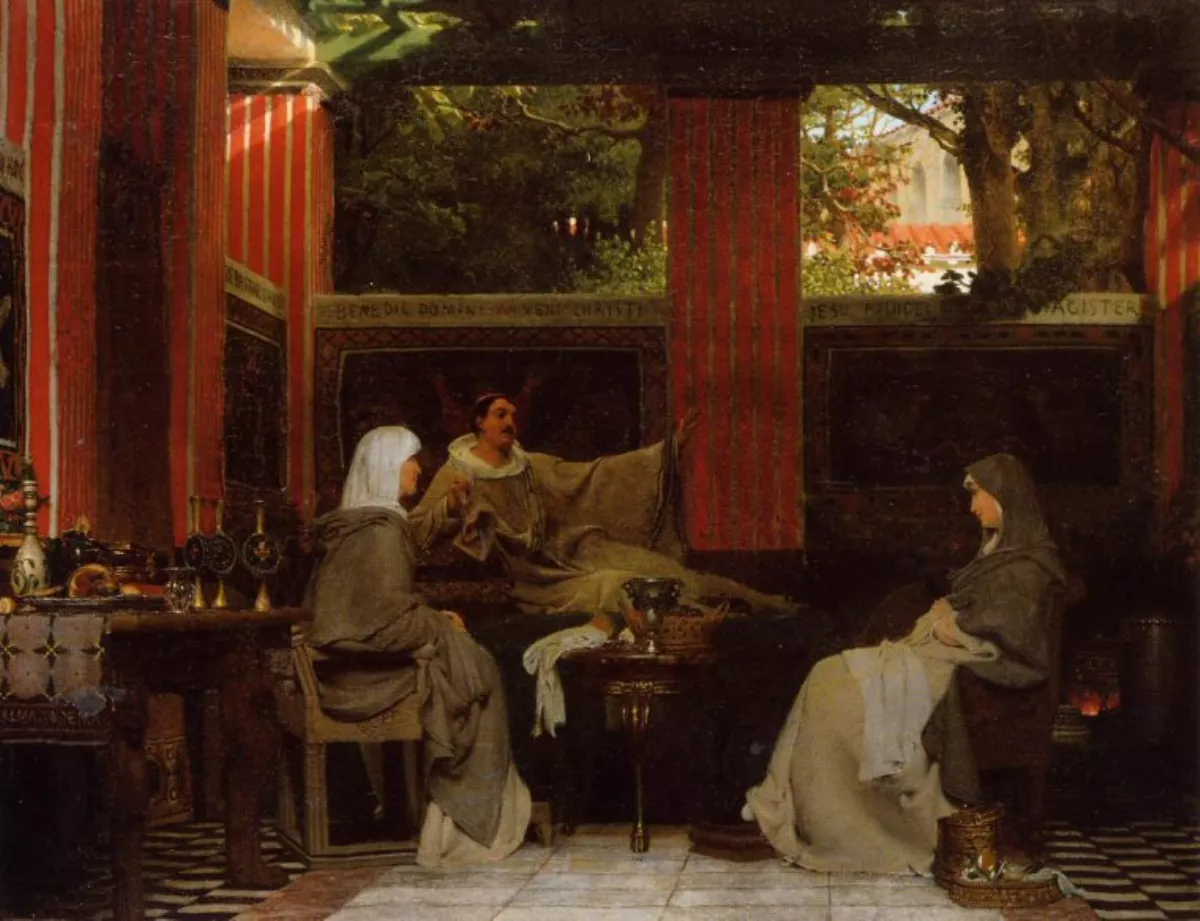 1.
1. Venantius Fortunatus was born between 530 and 540 at Duplavis, near Treviso in Veneto, Italy.

 1.
1. Venantius Fortunatus was born between 530 and 540 at Duplavis, near Treviso in Veneto, Italy.
Venantius Fortunatus grew up during the Roman reconquest of Italy, but there is controversy concerning as to where Fortunatus spent his childhood.
Venantius Fortunatus eventually moved to Metz in the spring of 566, probably with the specific intention of becoming a poet at the Merovingian Court.
Venantius Fortunatus himself explains two entirely different reasons for this route.
About a year after he arrived in Metz, Venantius Fortunatus travelled to the court of King Charibert, Sigibert's brother, in Paris, and stayed there until Charibert's death in 567 or 568.
Venantius Fortunatus had made another great friendship in Tours and Poitiers: with Gregory of Tours, who was installed as Bishop of Tours in 573, from whom Venantius Fortunatus received patronage.
In 580, Venantius Fortunatus wrote a poem defending Gregory against treasonous charges placed upon him at Chilperic's court.
Venantius Fortunatus was called a saint after his death, but was never formally canonized.
Venantius Fortunatus is best known for two poems that have become part of the liturgy of the Catholic Church, the Pange lingua gloriosi proelium certaminis, a hymn that later inspired St Thomas Aquinas's Pange Lingua Gloriosi Corporis Mysterium.
Venantius Fortunatus wrote Vexilla Regis prodeunt, which is sung at Vespers during Holy Week.
Venantius Fortunatus wrote eleven surviving books of poetry in Latin in a diverse group of genres including epitaphs, panegyrics, georgics, consolations, and religious poems.
Venantius Fortunatus wrote four major panegyrics to four Merovingian Kings: Sigibert and Brunhild, Charibert, Chilperic and Childebert II and Brunhild.
Chilperic was known as a headstrong and hot-tempered ruler, however in this panegyric, Venantius Fortunatus depicts him as being gracious, compassionate and merciful, never making judgements too quickly, and even praises the king's poetry.
Some scholars have suggested that Venantius Fortunatus is simply trying to appease a new patron because of Gregory's uncertain future.
However, other scholars, such as Brennan and George, disagree, postulating that Venantius Fortunatus was evoking more of a correctional and moralistic poem towards Chilperic, reminding him how the ideal king ruled, and gently suggesting that he act in that way as well.
Venantius Fortunatus wrote panegyrics and other types of poems, including praise, eulogies, personal poems to bishops and friends alike, consolations and poems in support of political issues, particularly those presented by his friends Gregory of Tours and Radegunde.
Venantius Fortunatus's verse is important in the development of later Latin literature, largely because he wrote at a time when Latin prosody was moving away from the quantitative verse of classical Latin and towards the accentual meters of medieval Latin.
Venantius Fortunatus wrote a verse hagiography of his patron Queen Radegund.
Venantius Fortunatus's hymns are used extensively in the Hymnal 1982 of the Episcopal Church.
Venantius Fortunatus was one of the most prominent poets at this point, and had many contracts, commissions and correspondences with kings, bishops and noblemen and women from the time he arrived in Gaul until his death.
Venantius Fortunatus used his poetry to advance in society, to promote political ideas he supported, usually conceived of by Radegunde or by Gregory, and to pass on personal thoughts and communications.
Venantius Fortunatus was a master wordsmith and because of his promotion of the church, as well as the Roman tendencies of the Frankish royalty, he remained in favour with most of his acquaintances throughout his lifetime.
Venantius Fortunatus's works have been set to music in settings which themselves have become prominent artworks.